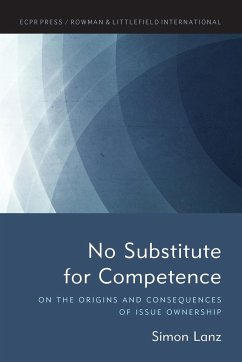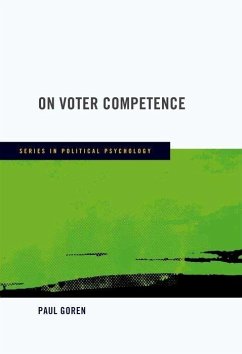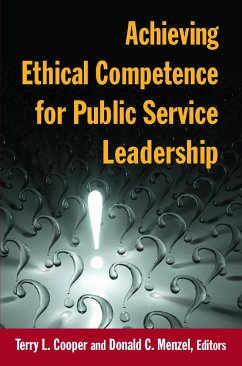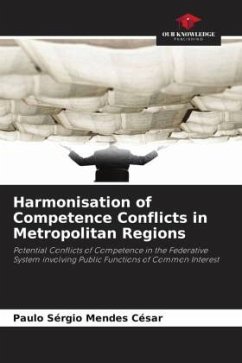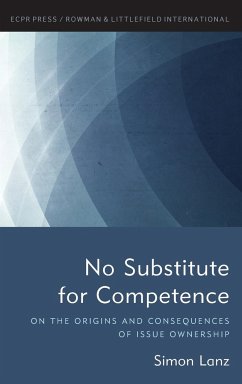
No Substitute for Competence
On the Origins and Consequences of Issue Ownership

PAYBACK Punkte
39 °P sammeln!
Issue ownership theory is a tale of two actors. On the one hand, it theorizes how parties compete with each other in their struggle for votes. On the other hand, issue ownership is about the citizen. It claims that voters are more likely to support a party if they think it is competent to handle issues they care about. This book provides unique insights into the undertheorized and understudied links between party competence and the vote. It argues that issue ownership voting (or competence-based voting) consists of three assumptions: First, voters are primarily interested in having issues hand...
Issue ownership theory is a tale of two actors. On the one hand, it theorizes how parties compete with each other in their struggle for votes. On the other hand, issue ownership is about the citizen. It claims that voters are more likely to support a party if they think it is competent to handle issues they care about. This book provides unique insights into the undertheorized and understudied links between party competence and the vote. It argues that issue ownership voting (or competence-based voting) consists of three assumptions: First, voters are primarily interested in having issues handled by a competent party. Unlike in other issue voting models this implies that voters are reluctant (or unable) to deal with the specificities of the exact solution to a political problem. Though positional considerations feed into evaluations of party competence, other factors are important, too. This is reflected by the second assumption, following which issue handling competence is a subjective preference with various sources. Third, competence is more decisive in the decision-making process if the voter cares deeply about the issue. These three assumptions yield the key formula of issue ownership voting: Voters support the most competent party on the most important issue.





